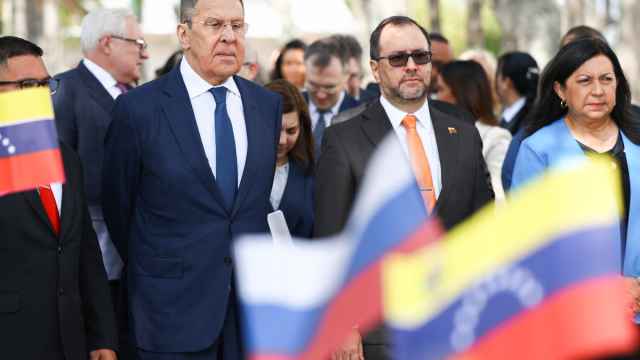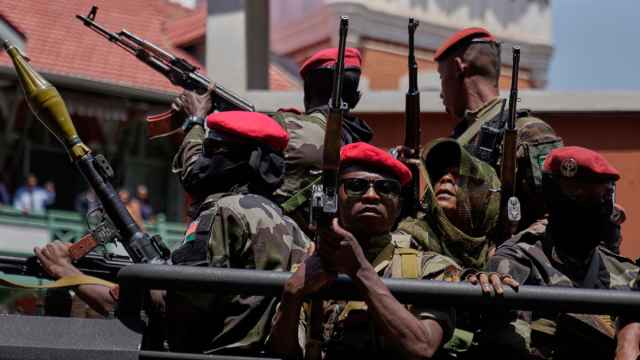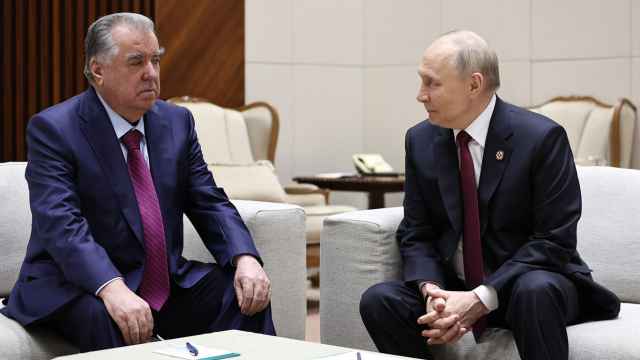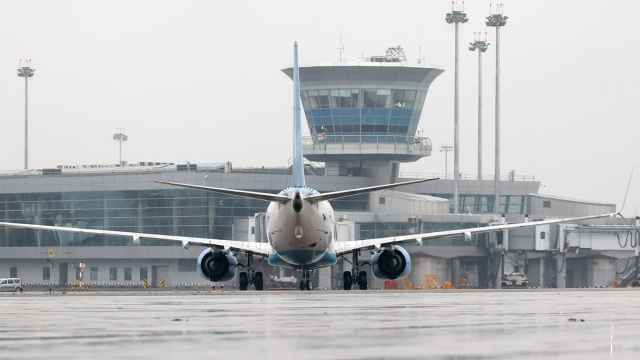Vitaly Kaloyev, the Russian man who murdered the air traffic controller he held responsible for a plane collision that killed his family, shares film critics’ views on a new movie about the tragedy: he didn’t like it.
This week, Kaloyev told the news agency Sputnik Ossetia that he was disappointed by “Aftermath,” Arnold Schwarzenegger’s latest Hollywood motion picture. The convicted murderer said he hasn’t watched television or seen a movie since 2002, when his wife and two children died in the Überlingen mid-air collision. Two years later, he traveled to Switzerland and stabbed to death air traffic controller Peter Nielsen for mishandling his family’s flight.
“It’s like [Schwarzenegger] spends the whole film begging for pity — for someone to caress him. I can tell you that it wasn’t like that for me. I don’t want anyone’s pity,” Kaloyev said, complaining that the film presents Nielsen as a “victim of circumstances,” and downplays the role of Skyguide, the Swiss air navigation company that infuriated him by offering him 160,000 Swiss francs for the death of his family.
In the film, Nielsen shows remorse for his mistake, but Kaloyev says the real Nielsen never apologized.
“There was such arrogance and such contempt in his eyes. The film doesn’t show this,” Kaloyev said.
More than a year after killing Nielsen, Vitaly Kaloyev was convicted of murder and sentenced to eight years in prison. Two years later, in November 2007, he was released on parole, after a Swiss court reconsidered his mental state at the time of the killing.
Once free, Kaloyev returned to his home in Vladikavkaz, Russia, where he was greeted as a hero who avenged the death of his family.
A Message from The Moscow Times:
Dear readers,
We are facing unprecedented challenges. Russia's Prosecutor General's Office has designated The Moscow Times as an "undesirable" organization, criminalizing our work and putting our staff at risk of prosecution. This follows our earlier unjust labeling as a "foreign agent."
These actions are direct attempts to silence independent journalism in Russia. The authorities claim our work "discredits the decisions of the Russian leadership." We see things differently: we strive to provide accurate, unbiased reporting on Russia.
We, the journalists of The Moscow Times, refuse to be silenced. But to continue our work, we need your help.
Your support, no matter how small, makes a world of difference. If you can, please support us monthly starting from just $2. It's quick to set up, and every contribution makes a significant impact.
By supporting The Moscow Times, you're defending open, independent journalism in the face of repression. Thank you for standing with us.
Remind me later.






